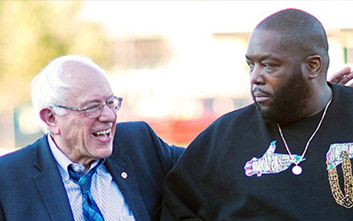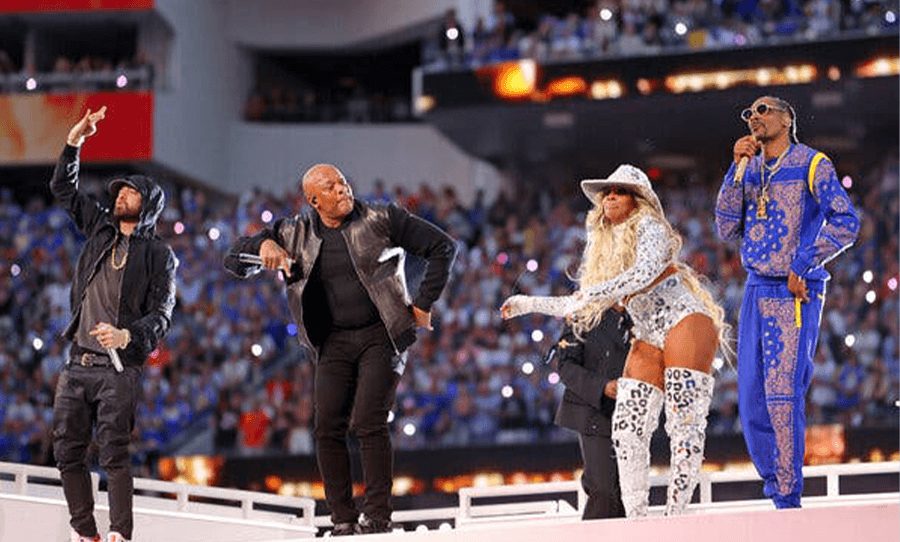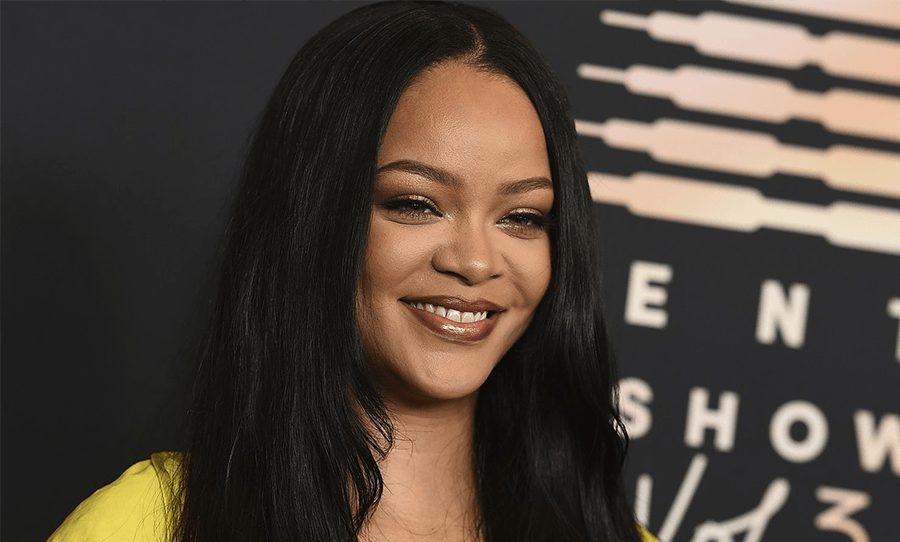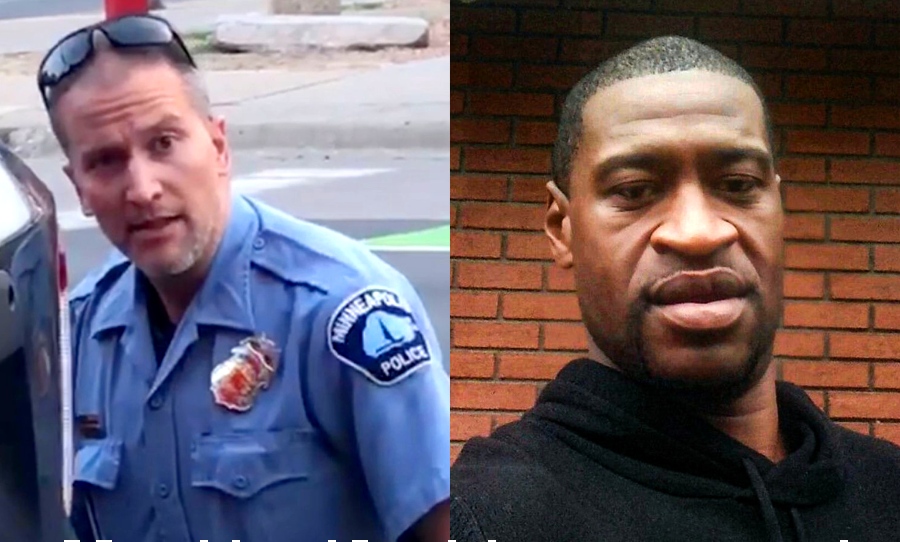How many times have we seen celebrities or political figures taking a stand and doing their bit for the good of the world? Probably more than you could count, because there always seems to be someone with a camera there to capture them doing it.
It’s a picture we are used to, and the Bonos and the Bob Geldofs of the 80s have given way to a new wave of do-gooders. We don’t even find them irritating anymore. It feels wrong to say that advocacy and activism are trending, but it’s not sex that sells these days. It’s a social conscience.
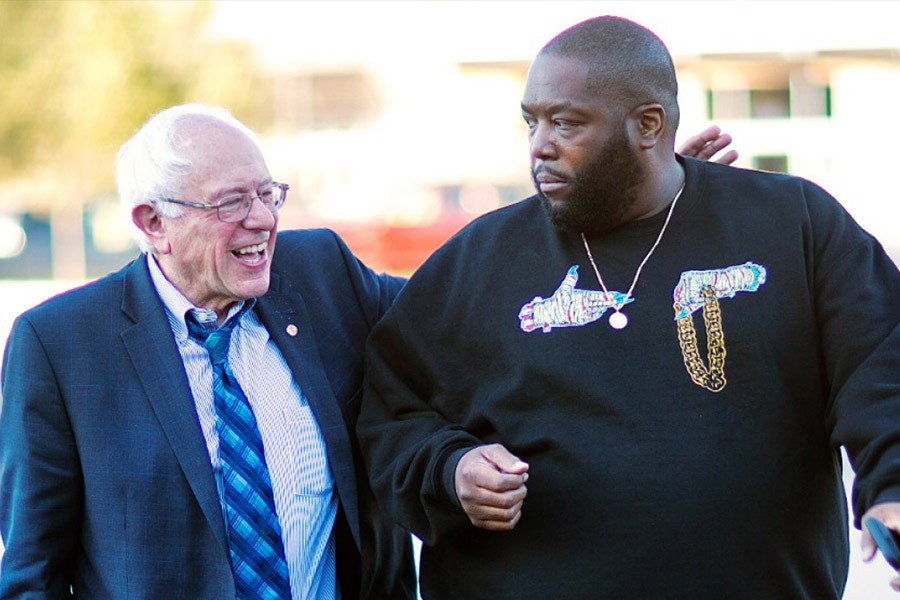
Yes activism sells, but that doesn’t mean that every activist is only looking for a pay check. Maybe activism is just what we want these days.
Historically, music and politics have been entangled in a love-hate relationship. There’s very little call for protest songs when times are good. But as brands the world over are bringing an ethical slant to their marketing, are musicians taking advantage of this trend and employing activism as a selling tool as well?
Unlike the world of advertising, social consciousness has always been a part of music. We don’t need to revisit the history lesson of Dylan, Hendrix and Lennon, punk rock and 80’s hip-hop. Looking far back to before the beginning of recorded music, song was a form of narrative and teaching. Its role has always been to engage an audience in a conversation, to express thoughts and opinions, to instigate change and emotion.
Music has the ability to inspire feeling beyond many other art forms, and every social movement of our time has had its own soundtrack.
Perhaps the difference today is that we can no longer pick out the activists as a minority; advocacy has spread to the mainstream. A social conscience has become like a tattoo; in this generation, there are more artists who have one than not.
Not only that, but more musicians are appearing alongside politicians; Killer Mike standing with Bernie Sanders, or Madonna, Miley Cyrus and Rihanna firmly #WithHer. Historically, more political artists have steered clear of this kind of direct affiliation, aside from perhaps Bob Marley in his role as peacemaker to Jamaican politics.
2016 saw perhaps one of the most reactive times for music in recent history. Particularly when the US teetered on the edge of potential disaster and the spectre of Trump for president solidified into reality, the fights for gender and racial equality became more urgent.
With To Pimp A Butterfly, Kendrick Lamar stepped into the shoes of Dylan, or The Clash, in 2015. A masterpiece and an open admission of political and social concerns, it was the kind of firestarter that Springsteen sung about.
Social comment took centre stage, no longer shunned aside from mainstream music. Blood Orange’s Sandra’s Smile remembered the young African-American woman found hanged in a Texas police cell. The spate of shootings of Alton Sterling, Philando Castile and Laquan McDonald saw musicians speaking out, loudly.
John Legend and Questlove, amongst others, took to twitter, Beyoncé released a statement via her website and Jay-Z recorded a song in response. White artists offered solidarity to the Black Lives Matter movements: Lady Gaga put out her own track in memory of Trayvon Martin, while Macklemore and Ryan Lewis’s White Privilege II was mostly met with disdain.
The cynicism that attached itself to that song is symptomatic of how awake audiences are to artists “jumping on the band wagon”. Any number of people gleefully joined the dots between the white artist apparently mourning the privilege attached to them, yet reaping the benefits of that same privilege.
It’s unthinkable to suggest that Beyoncé might be cashing in on the rising tide of social consciousness, and yet as political activism spreads like wildfire should we wonder if every artist is genuine?
It isn’t just the Black Lives Matter movement; Against Me!’s Laura Jane Grace was just one voice speaking out for trans rights as the notorious ‘Bathroom Bill’ sparked a much bigger conversation. Neil Young took up the cause of the Dakota Access Pipeline protesters on Peace Trail, honouring the claims of an indigenous people.
And it isn’t just in America that social activism has come to the fore; A.B. Original moved to open up the conversation around racism in Australia in their brutally honest debut album Reclaim Australia.
Political activism has not become solely the realm of hip-hop and rap either; Sydney’s Dispossessed brought the complaint of indigenous cultures to the metal scene.
Let me make it clear that I’m not looking to cast doubt on the sincerity of any of these artists, more to illustrate how much more aware we are of music’s political voice. Whether artists like this have always existed in these staggering numbers is a different question. The difference is how many people are listening now.
The protest song is no longer the realm of beardy hippies, and we no longer look to anthems in the way that We Shall Overcome soundtracked the Civil Rights Movement. Activism is becoming ingrained in an artist’s story, and in their personalities. Even Madonna’s appearance at the Women’s March earlier this year saw the icon return to a confronting persona, which had given way to kabbalah and cosmetics in recent years.
It would be so easy to say that that bandwagon is getting more crowded by the day. It isn’t just Macklemore who is seeing publicity and profit off the back of the attention that activism is receiving.
And this is the catch 22; a cause needs advocates, but who is a more effective champion? The image of the earnest, penniless troubadour may sound like the ideal activist, driven purely by the cause and receiving no reward. But in the real world, that means no one is listening. As soon there is an audience to listen to your music, or turn up to shows, you are looking at some form of profit.
A global superstar like Beyoncé will cash in on publicity or sales, whether she likes it or not. Ticket sales for her Formation world tour alone brought in over US$250 million. And even if she was to donate all of that money, the media coverage would be better than money could buy. But, at the same time, over 2 million people bought tickets to that tour. How many more people listened to her songs at home, or on the radio, read the articles and reviews? How many people does her message reach, and how many will take that on board?
Activism and advocacy may be trending, but equally, our world is at a tipping point. We are facing down urgent issues of race, gender, conflict, leadership and the environment. We need advocates more than ever, and if we start to question the sincerity of music as a part of that, then we are potentially devaluing one of the most effective voices.
Yes activism sells, but that doesn’t mean that every activist is only looking for a pay check. And it’s worth considering that activism only sells because it’s what we want. Music is opening up that conversation, and it’s up to us whether or not we choose to believe that every person reached is worth more than the price of a concert ticket.
